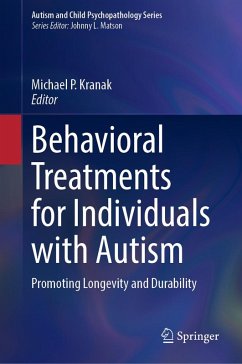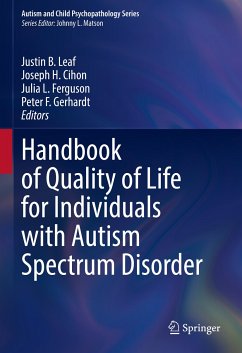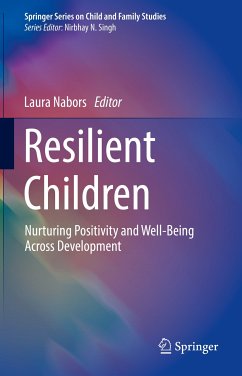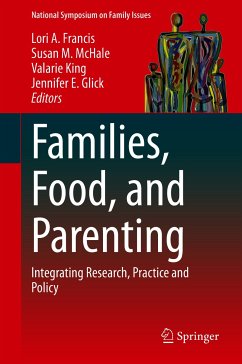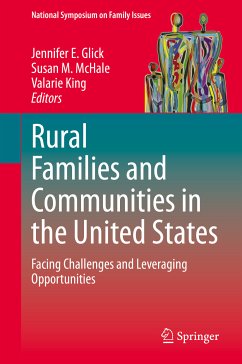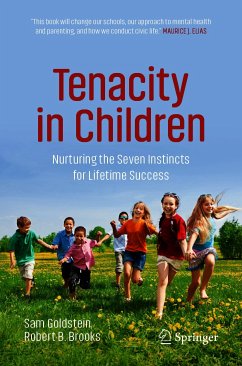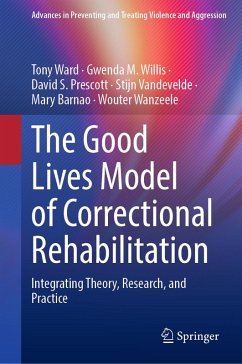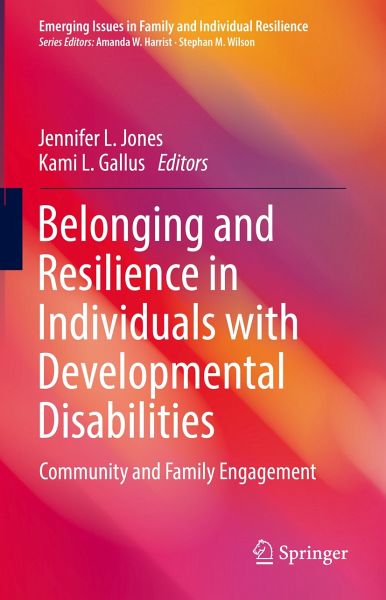
Belonging and Resilience in Individuals with Developmental Disabilities (eBook, PDF)
Community and Family Engagement
Redaktion: Jones, Jennifer L.; Gallus, Kami L.
Versandkostenfrei!
Sofort per Download lieferbar
104,95 €
inkl. MwSt.
Weitere Ausgaben:

PAYBACK Punkte
52 °P sammeln!
This book examines belonging as a key protective factor for enhancing resilience for individuals with intellectual and developmental disabilities and their families. It focuses on understanding intellectual and developmental disabilities and resilience from systemic and social-ecological perspectives, emphasizing the roles of professionals, families, and communities in combating long-standing segregation and health disparities experienced by individuals and families. The volume explores the dimensions of belonging across diverse professional fields using a person-centered approach that acknowl...
This book examines belonging as a key protective factor for enhancing resilience for individuals with intellectual and developmental disabilities and their families. It focuses on understanding intellectual and developmental disabilities and resilience from systemic and social-ecological perspectives, emphasizing the roles of professionals, families, and communities in combating long-standing segregation and health disparities experienced by individuals and families. The volume explores the dimensions of belonging across diverse professional fields using a person-centered approach that acknowledges the significant lifelong role of family members and emphasizes reflective practice for professionals. Chapters present research and innovative strategies to facilitate belonging when working alongside individuals and families.
Key areas of coverage include:
Belonging and Resilience in Individuals with Developmental Disabilities is a valuable resource for researchers, professors, and graduate students as well as clinicians, therapists, and related professionals in developmental psychology, family studies, public health, and social work as well as related disciplines, including education policy andpolitics, behavioral health, and psychiatry.
- Family-professional partnerships in working with individuals with intellectual and developmental disabilities across lifespan and community contexts.
- Spirituality, mental health, and identity in persons with intellectual and developmental disabilities.
- Research ethics and design in working with individuals with intellectual and developmental disabilities.
- The diverse needs, desires, and preferences of individuals with intellectual and developmental disabilities.
- The importance of individualized planning and approaches in fostering belonging for individuals with intellectual and developmental disabilities.
Belonging and Resilience in Individuals with Developmental Disabilities is a valuable resource for researchers, professors, and graduate students as well as clinicians, therapists, and related professionals in developmental psychology, family studies, public health, and social work as well as related disciplines, including education policy andpolitics, behavioral health, and psychiatry.
Dieser Download kann aus rechtlichen Gründen nur mit Rechnungsadresse in A, B, BG, CY, CZ, D, DK, EW, E, FIN, F, GR, HR, H, IRL, I, LT, L, LR, M, NL, PL, P, R, S, SLO, SK ausgeliefert werden.



